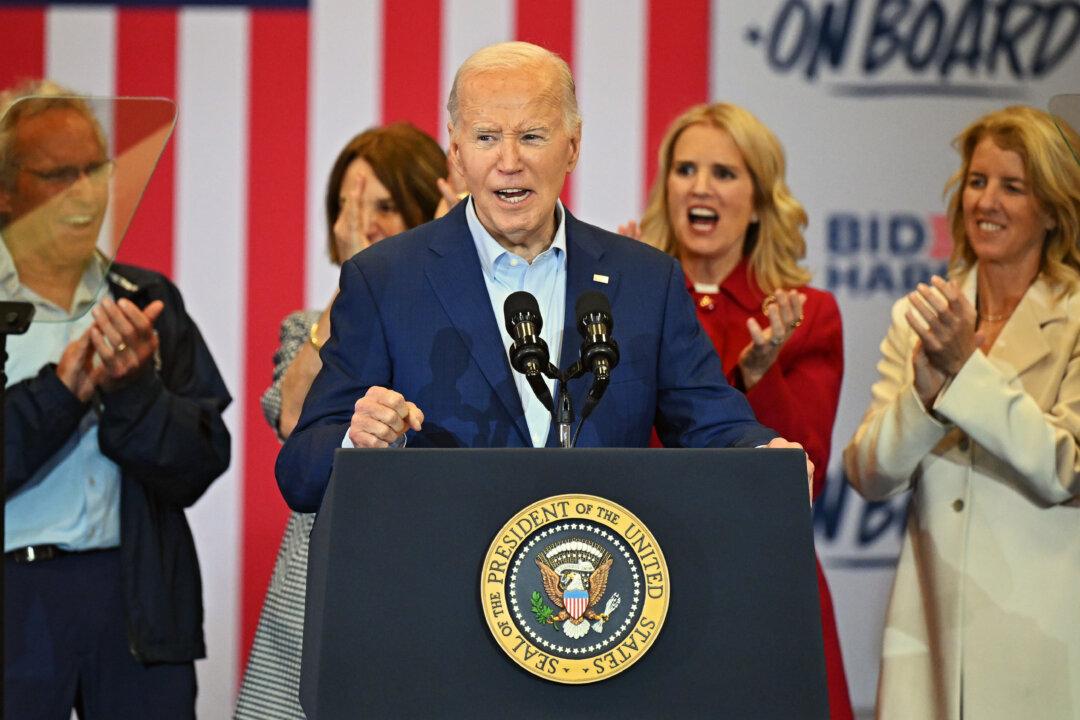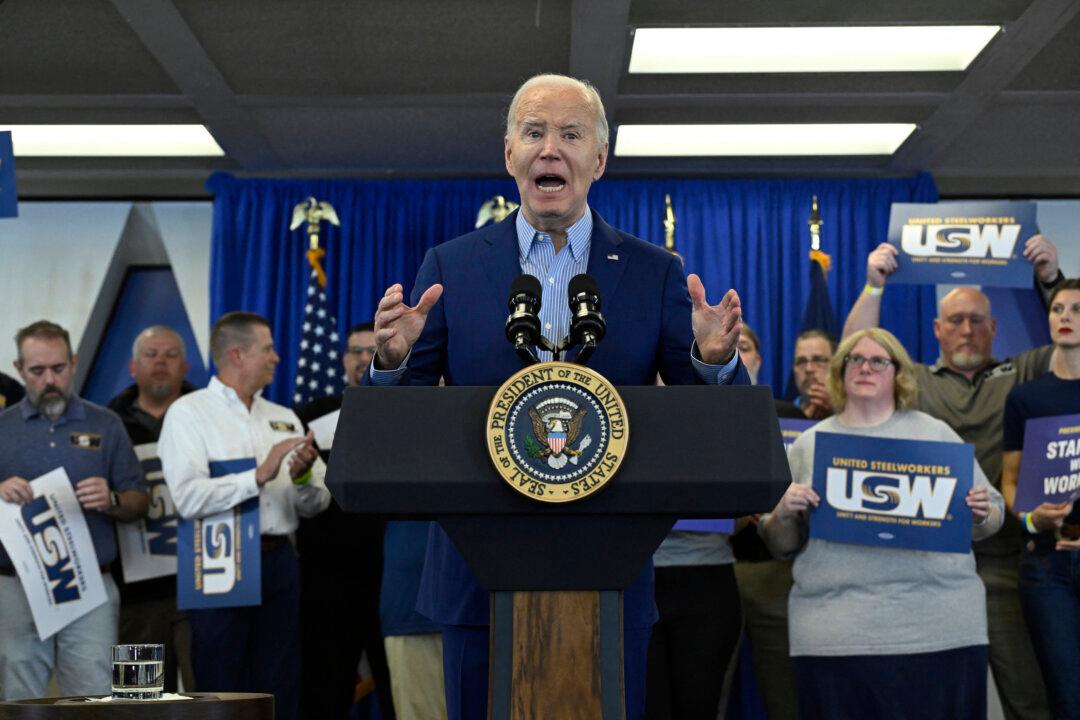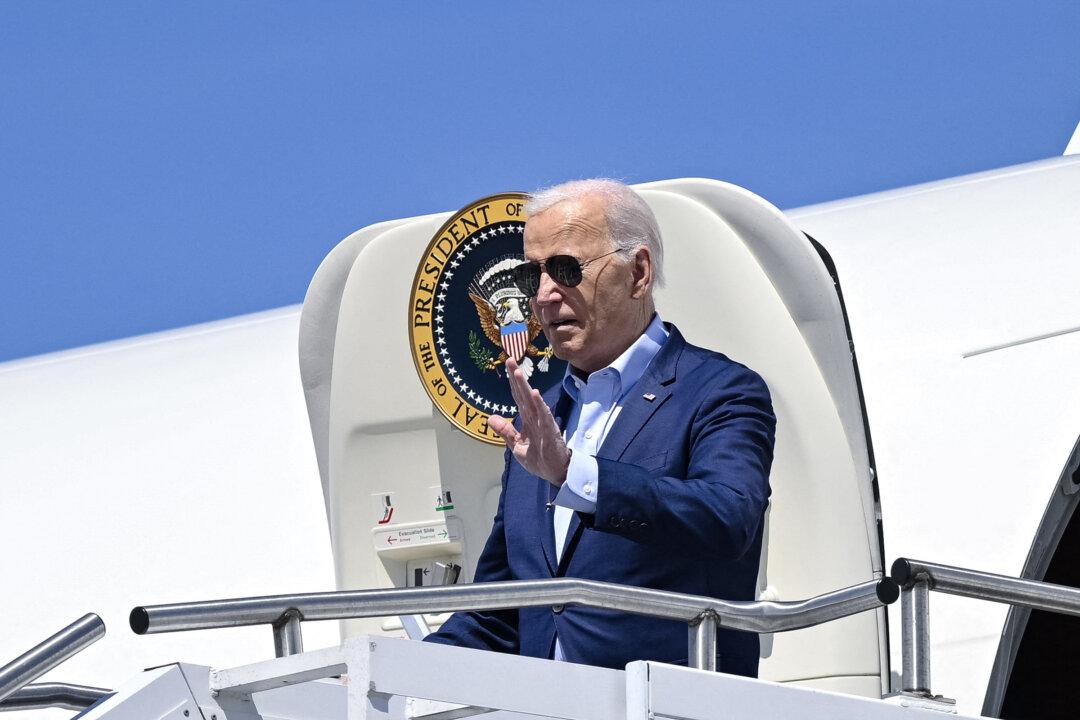Major U.S. companies are advocating for changes in the tax system that they say will boost investment, jobs, and economic growth. Business leaders are urging Congress to pass a bill by the end of this year.
Chief executives of large corporations including UPS, Lockheed Martin, Boeing, AT&T, and Ernst&Young expressed their support for tax reform on Sept. 20 at a panel discussion hosted by Business Roundtable, an association of CEOs of leading U.S. companies.
“We need to get beyond the polarization in Washington, D.C., and focus on solving real problems,” Dennis Muilenburg, chairman, president, and CEO of the Boeing Company, said during the panel discussion.
David Abney, chairman and CEO of UPS, said business leaders spend a lot of time in the nation’s capital to educate people and ensure they understand the importance of tax reform. “But we also, as a business community, need to make sure that we are united on this issue and that we don’t eat ourselves,” he said.
The executives are calling for a competitive tax rate and a territorial tax system, which would exempt foreign income from domestic taxation. They say a tax code rewrite would energize the economy and create more jobs.
“A cut in the corporate tax rate would allow us to build more manufacturing jobs in the U.S., create growth capacity, with the ripple benefit to the broader enterprise and our communities where we work,” said Muilenburg.
America’s biggest exporter, Boeing has more than 140,000 employees, and nearly 90 percent are in the United States. Potential tax cuts will benefit not only Boeing and its employees, but also its massive supply chain, which includes 1.5 million U.S. jobs.
“So we see this [tax reform] as a big enabler. It will unleash capital investment, it will unleash our ability to grow jobs, and it will allow us to lead in manufacturing,” Muilenburg said.
It has been more than 30 years since the last major tax reform occurred, under President Ronald Reagan in 1986. Since then, other advanced nations have aggressively reduced their corporate tax rates and implemented a territorial tax system.
According to the CEOs, if the new tax code includes a territorial system, U.S. companies would be able to bring back to the United States trillions of foreign earnings trapped overseas.
The existing “worldwide” tax system double-taxes the foreign income of U.S. companies as soon as these earnings are repatriated. Hence most U.S. multinational corporations prefer to keep the money offshore rather than reinvesting it back in the United States.
“We are an outlier,” said Mark Weinberger, chairman and CEO of Ernst&Young.
“What we’re suggesting, and the Business Roundtable is advocating for, is not to do something that nobody has done before. It’s actually to catch up with the rest of the world and just be competitive.”

Crossing the Finish Line
Business leaders are optimistic that President Donald Trump and Congress will be able to pass reforms by the end of the year.“The people in the Senate and Congress believe that if they don’t get tax reform done, it may be [about] political survival for them. So I actually take comfort in that,” said Randall Stephenson, chairman and CEO of AT&T Inc.
The current tax code puts American corporations at a competitive disadvantage. The effective tax rate of UPS, for example, is 34 percent and there is a nearly 10 percent difference in tax rates between UPS and foreign competitors, according to Abney.
Abney is optimistic that the new administration recognizes the “real need” to fix this problem. Should a territorial tax system be enacted, UPS plans to bring some of its foreign earnings back and invest in the United States.
“So the time is right, the need is there. More and more people are starting to understand it. We just need to make sure that we take this thing to the finish line,” Abney said.
Corporate tax reform is also a national security issue, according to Marillyn Hewson, chairman, president, and CEO of Lockheed Martin Corporation, the Pentagon’s largest defense contractor.
“We’re about national security. We’re about investing in technology and capabilities to keep the edge for the United States against our adversaries,” Hewson said.
The defense contractor has over 16,000 suppliers in the United States that are all small- and medium-sized businesses, she said.
“If we are facing competition around the world that doesn’t allow those businesses to invest in that capability and technology, then it’s going to have an impact on our national security.”
According to a survey conducted by Business Roundtable in May, 71 percent of the CEOs said corporate tax reform would be the most efficient way to accelerate economic growth over the next 12 months. And 90 percent believed delaying tax reform would harm the U.S. economy.
Besides, 76 percent of the CEOs who responded to the survey said they would hire more people if tax reform were successfully implemented. More than 120 CEOs participated in the survey, conducted between April 12 and April 25.





Friends Read Free